Air Ace vs Heidegger s Horror part 2
- 2 years ago
- 61
- 0

 3 years ago
3 years ago
============> ACE 911 by Laika Pupkino ============> Marvin Hauser---who would rather you call him Ace---took a long pull from his two liter Mountain Dew and set it back on the desk. He unplugged the a.c. cord and carried his gently whirring laptop down the hall to the bathroom, never once taking his eyes off the images on the screen. They were photographs of girls. Beautiful girls, with long tresses and voluptuous figures. That made it okay that they had dicks, right?...
 4 years ago
4 years ago
It was about ten minutes to showtime. I’d be at the mosque in three minutes or so, although K-T would drop me off at the mall entrance and then proceed to another destination. We were making good time, because although some traffic kept moving, many cars just pulled to the side of the road wherever there was space near a mosque. Sometimes cars were abandoned in the middle of the road, blocking each other in. The police never made a fuss: after all, everyone was supposed to be praying. Men...
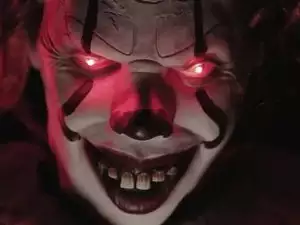 3 years ago
3 years ago
Diese Geschichte spielt in einer zukünfigen Welt 200 Jahre nach einem weltweiten Krieg. Der Krieg dauerte nur 3 Jahre, doch kurz vor Ende war eine Partei so verzweifelt, dass sie mit Wundermitteln experementierte. Bei einem Fehlschlag wurde ein Biologischesmittel freigesetzt. Erst 3 Jahre nach Ende des Konflikts traten die Auswirkungen auf. Das Mittel veränderte Gene. Es wurde damals für Soldaten entwickelt und reagiert speziell auf das männliche Genom. Frauen sind davon nicht befallen. Die...
 2 years ago
2 years ago
Sam Trump, Ace Detective By Ron Dow75 Louise King thought that the place she had her appointment was very appropriate. It was a five-story brick building built in the 1910's or 20's in a rundown section of the city that was now being renewed. In fact, when she entered the building she saw that the lobby opened up into a large atrium with large, sun-admitting skylights stories overhead. Scaffolding, materials, tools and workmen vied for space with those still using the...
 4 years ago
4 years ago
Regina was in the cockpit of the Spitfire called PG-9 checking the gauges, ticking them off one-by-one on the clipboard list when the scramble horn sounded. She only hesitated a moment, tossed the board and list out, yanked the little access door closed, slid forward the canopy and pulled back the throttle and adjusted the mix. She revved the engine, released the parking brake and spun out of the revetment and then taxied to the end of the runway, pulling on the helmet as she did, her heart...
 4 years ago
4 years ago
When he was finished he wiped his arms free of grime and sweat. Picking up a bucket of tepid water he drenched his body. Even with hood and his strength they had kicked and wriggled. The shouts and yelps had been deafening in the confined space. But without vision none could direct their resistance or escape or know what was happ ening as they listened to the other beg and moan. Diora had being in the position the longest as he knew she was the most resistant. Her body ached her mind...
 2 years ago
2 years ago
Diora turned on the wipers again and they uselessly screeched against the hot dry screen. "It's making it worse not better," muttered her friend as the young red head tried to clear her view from hours of dust. They'd left Warsaw earlier that week and only a month into their European expedition had realised that a road trip had it limitations. "Did you measure how far Moscow is from Warsaw?" Asked the less opinionated girl in the back seat. Diora gave a chuckle "well it...
 2 years ago
2 years ago
Now held under his bizarre funeral parlour the "undertaker" begins to bit-by-bit break down their resistance to his evil plans. ***** From her locked bent forward position it was difficult for Keeley to lift her head to look straight ahead. The stocks bit into her shoulders; her tiny wrists snapped through even smaller gaps in the scissor wood beams. Her mouth was dripping saliva from the edge of her lips as she slurped on the big neon ball gag. The feeling was disgusting, this shy...
 3 years ago
3 years ago
Rick Summer, Ace Detective by Angelique Bouchette Warning! This story contains material of an adult nature and is intended for mature readers and for personal use only. No copyright infringement is intended. Chapter 1: A New Case At Last Rick Summer sat with his feet propped up on his battered desktop, hands behind his neck, as he leant back in his comfortable old Vinyl-covered armchair, and...
 3 years ago
3 years ago
What had started out as some fun flirting on the Internet ended up far more than I had bargained for! We have met innocently enough in the chat room, some good-humoured fun, and a little bit of gentle flirting. You don’t come in here for anything serious or mind blowing, or at least that’s what I thought. The chat had become a little bit more intense, still fun and flirty but I soon realised that there was a sensual undertone to the witty one-liners and the quick responses. That chat became a...
Masturbation 3 years ago
3 years ago
The Curtis was smoking and the canopy was sliding back as I rolled up under him and put a short burst into his wing root and he exploded. I flew through the debris and caught a glimpse of the pilot's shredded body. Number five! I was an ace. I get the gold wings and all the girls I wanted. Two Yaks, a Hurricane, a Blenheim and this P-40; five confirmed kills. I barrel-rolled over the strip and landed hot, reported to the officer of the day and my wingman confirmed it with a smile and a smack...
 1 year ago
1 year ago
Have you ever found yourself browsing around ThePornDude and thinking to yourself, ‘gee, there are lots of sites to beat off to, but what I really want to watch is a werewolf bukkake’? If so, it’s your lucky day! I have just the tube site that you can visit where you can find exactly that kind of content! It’s over on XVideos.com/Horror Porn, and you will find a substantial number of videos that are just waiting for you to cum to!If horror porn is your thing, know that XVideos.com/Horror Porn...
Extreme Porn Websites 1 year ago
1 year ago
I browsed the horror stash at Motherless all morning, and now I don’t know if I should jack off or go hide in the closet until the danger has passed. Then again, hiding out might give me the perfect opportunity to rub one out in the peace and safety of the dark. Who knows who—or what—might be peeping in the windows with nefarious intent if I sit at my desk and shake my dick at the screen. Just like when I masturbate at the local Starbucks, I’ve got to be sure to balance the potential pleasure...
Extreme Porn Websites 2 years ago
2 years ago
This is a story about a women I know, Saira. I know Saira, because my wife baby-sits her kids while she is at work. Saira is a very beautiful women. she wears burkha..She is about 5′ 8 tall with mid length curly black hair, steel blue eyes, fantastic smile and personality, and a voluptuous body. If I was to guess what her measurements would be, I would say they are 36C-30-40 I have a few myself. I fell in lust with Saira the first time I saw her, with her good looks and great personality it is...
 1 year ago
1 year ago
I really wasn’t looking forward to reviewing AdultEmpire’s horror section, until I saw Lexi Belle on the very first results page and thought that maybe there’s some potential here. Look, if I haven’t made it abundantly clear already, horror porn used to be very fucking boring back in the day. It was uninspired. It felt exactly like every other type of smut, except it claimed to be horror themed.AdultEmpire has videos on backlog from over two decades ago, so as you can imagine, most of the smut...
Premium Extreme Porn Sites 2 years ago
2 years ago
Author's note: this is actually an older story that I wrote almost 15 years ago. A gentleman who has been encouraging me to write these sissy stories suggested that I post some of my older work online here, so that all of my stories would be available to read in one place. I hope that you enjoy this story; Sissy Michelle The Terrace View Apartments: Chapter 1 - Danielle I got a great job, right after I graduated from college. And while the job required that I relocate from my...
 2 years ago
2 years ago
A movie I've never seen and a night I'll never forget.The night I lost my virginity was wonderful and definitely memorable, but it certainly wasn't all rose petals and fireworks. It wasn't the culmination of a whirlwind romance or the fruits of a well-laid plan of seduction. It wasn't really anticipated at all. Like most people's first time, it was an alcohol-fuelled, spur of the moment decision taken by two people who had suddenly found themselves attracted to each other.It happened towards...
 4 years ago
4 years ago
The night I lost my virginity was wonderful and definitely memorable, but it certainly wasn't all rose petals and fireworks. It wasn't the culmination of a whirlwind romance or the fruits of a well-laid plan of seduction. It wasn't really anticipated at all. Like most people's first time, it was an alcohol-fuelled, spur of the moment decision taken by two people who had suddenly found themselves attracted to each other. It happened towards the end of my first year of university. I was nineteen...
First Time 4 years ago
4 years ago
++This is a short story written for a variety of reasons. It’s kind of a kid’s story, I know, but I think that some here may like it despite being slightly saccharine. We all have to face our fears eventually as we grow up. We all have our own personal fears, and we all face them in our own ways. Either way, this is just a fun little adventure story that was written a year or so ago that I decided to go ahead and share. I hope that some of you get a kick out of it. No laundry was harmed in the...
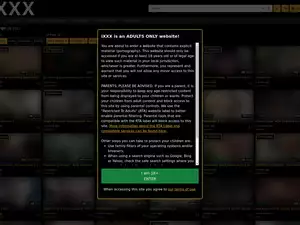 1 year ago
1 year ago
iXXX.com! The only place where horror meets actual whores. My initial reaction to IXXX's horror category was pure fascination and absolute fucking shock. The only thing more terrifying than seeing the Predator eat pussy is watching Freddy and Jason Fuck. But don't get me wrong, their videos have plenty of shit to fap to. I'm not gonna say that my cock didn't stick up when I saw Pennywise fuck a fat-titted MILF, but some of the shit on this site blew my mind while blowing my load. With various...
Extreme Porn Websites 4 years ago
4 years ago
The front of the small bungalow seemed to be engulfed in flowers. Kacey had planted dozens of different types and colors of flowers and had been careful to make sure there would always be something blooming. For this reason she hated the winter as once her Marigolds died she would be out of luck until the Tulips blossomed in the spring. Her neighbors marveled at the beauty she brought to their surroundings without being gaudy. The 45 year old widow just loved being outside so she was just as...
 1 year ago
1 year ago
Much of human action is inspired by two emotions: Arousal and fear. It makes complete sense. The whole point of our existence is to fuck and make more humans, so of course, wanting to fuck would be on our minds all day. Furthermore, it's tough to fuck if you're torn to pieces by a bear while wandering the rugged forests of the northeastern United States. So you better keep your head on a swivel if you ever want to dip your dong into a danky snatch ever again.Ahh! Real Boners!You may have...
Extreme Porn Websites 3 years ago
3 years ago
Kacey has always had the biggest crush on her brothers best friend James, so one she decides to do something about it, she knew she wanted him.So she sneaks into her brothers room and sneaks James number of of his phones,she runs back into hers and text James and says "I've always had a crush on you and if u wanna know who I am, u will meet me"James texts back and says "When and where?", Kacey texts back and says "Meet me at the creek on miller road at six"James texts her back and says "Okay...
Straight Sex 3 years ago
3 years ago
Chamber of Horrors Chamber of HorrorsSynopsisWhen a childish prank goes wrong two sisters find themselves spending time in ?The Chamber of Horrors?. Chamber of Horrorsby obohobo WarningsPlease take note!The text in this story contains erotic material and is expressly written for adults only. MF MM NC. Mc Spanking tort. rapeIf you are underage or offended by such material or, if viewing this file is illegal in your locality, then leave, close or delete this file-story now. This is a work...
 1 year ago
1 year ago
HorrorPorn! Hey, pervs, I’ve got something special for the extra-freaky freaks out there. This ain’t for everybody, that’s for damn sure. If you’re scared of horror movies or turned off by rough sex, hit the back arrow on your browser now. The rest of you can check out HorrorPorn.com. That is, if you’re brave enough.The Last Whorehouse on the LeftBefore you even get to look at HorrorPorn’s landing page, a big warning covers the screen. You’ve got to agree you’re an adult and won’t get offended...
Premium Extreme Porn Sites 3 years ago
3 years ago
Mike once again wished Kacey was still with him. It wasn’t just raising the girls, although that was more than sufficient reason. It also wasn’t the sex he missed. Although Kacey had been enthusiastic and skilled at that, Mike knew that wasn’t a problem. He was decent looking enough and had never had problems finding female companionship. No, he just missed her. She understood him like no other woman ever had. They met freshman year at Springwater State when they were paired as lab...
 3 years ago
3 years ago
Ahhhh, spring is in the air. Birds chirping, skin tanning, graduation. Graduation? I can't believe in just two more months I will be graduating from Edenton High. It seems like it wasn't that long ago that I met my best friend, Jen, and my good friend, Kacey. I've known Jen since kindergarten. And I've known Kacey since she started perving my ass in fifth grade. Together, I think we've turned out perfectly. I'm easily one of the tallest clarinet players you'll ever see. I probably could...
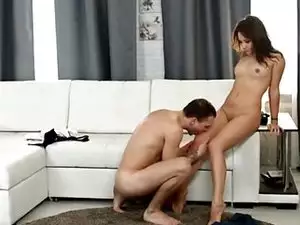 3 years ago
3 years ago
I woke up around eight in the morning, an hour later than I’m used to. I walked to the other side of the house, to Asim’s bedroom, and heard snoring. That was good. I had a quick yet annoying shower and took some time to spruce myself up. I’m not one of those men who are completely hopeless when they’re single, but what with Mel being a professional make-up artist and hairstylist, amongst many other talents, I rarely needed to groom myself nowadays. But now I was spending time shaving around...
 3 years ago
3 years ago
How do you define horror, dear reader? I mean true horror, the kind that rips a mind and soul apart. Is your horror supernatural, with extraordinary creatures lurking in the shadows and mystifying forces overwhelming us, but beyond our ability to comprehend? Or is horror more banal in its origin, stemming from human weaknesses and failings, from generations of damaged people handing down their ways. Maybe your flavor of horror comes suddenly, with dramatic and deadly confrontations or from...
 2 years ago
2 years ago
Black wheels spin on the wet blacktop, kicking up water as she drives through darkness, Still Corners’ ‘Sad Movies’ playing on fuzzy speakers via her favorite station. It's a night when not even the moon threatens to shine behind the clouds, not a flash of lightning to illuminate even the briefest moment. The clouds are so thick they're uniform, rain dripping slow and heavy.Alexandra is cozy in the flannel-bound seat, fan circulating heat through her shabby vintage Beetle. Her wavy hair...
Horror 4 years ago
4 years ago
I know its not exactly erotica, more or less im thinking about a survival horror with no limit to the general amount of fear, v******e and sexual issues. Though its a survival horror that doesn't mean it wont be erotica, just not entirely. When I see horror stories or movies i notice that there is nothing to fear about the horror aspect within them. What bothers me the most is how goodie goodie the main protagonist always seems to be.Plot: A man wakes up in a large Hospital. Usually the main...
 2 years ago
2 years ago
How do you define horror, dear reader? I mean true horror, the kind that rips a mind and soul apart. Is your horror supernatural, with extraordinary creatures lurking in the shadows and mystifying forces overwhelming us, but beyond our ability to comprehend? Or is horror more banal in its origin, stemming from human weaknesses and failings, from generations of damaged people handing down their ways? Maybe your flavor of horror comes suddenly, with dramatic and deadly confrontations or from...
 1 year ago
1 year ago
What’s up, you naughty little pervert!? Are you tired of jacking off porn videos with half-assed scripts and a single camera? After spending so long the world’s sluts slamming their slash for you in front of a £1000 camera, you’ve got to wonder… Is there more than this? There’s got to be content with some kind of depth, right?I mean, these girls are more than just bags of meat for you to beat your own meat to. Sometimes, you want to immerse yourself in a story! You want to experience the kind...
Premium Extreme Porn Sites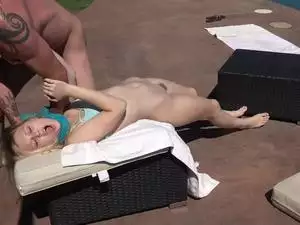 3 years ago
3 years ago
Jason was lying on his back, spread eagle and howling in agony. Keeping him pinned to the ground were several strands of barbed wire, burrowing into his hands and feet like earthworms, while repeatedly surfacing only to dive back down. He could feel it all, every tearing slip of the metal blades severing veins and muscle cords, the splitting of his skin as they surfaced and submerged, and every drop of blood spraying from the shredded arteries. He had already lost so much blood, enough to...
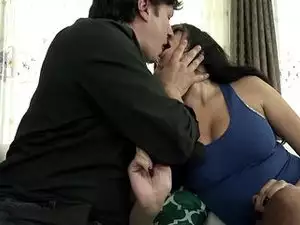 2 years ago
2 years ago
Witness To HorrorBy Sonya EsperantoE-mail: [email protected]’s Note:This is a story that I wanted to write, being both inspired, as well as adapting and borrowing, from a lot of Europorn/grotesque films and documentaries from the mid 1970s such as Cannibal Holocaust, Jungle Holocaust, Shocking Asia 1 & 2, as well from horror-fantasy stories and films based on Loveraft’s and Robert Howard’s works, such Shadow Over Innsmouth, Call of Cthulhu, Dagon,. The Black Stone, and...
 4 years ago
4 years ago
Summer Horror We had been a family of four, Mum, Dad, my older sister and me, then Dad left after quarrels and my older sister went off to live with her friend. So, now there were only two of us, I was twelve with Mum now a single parent struggling to keep us going and keep the house too. It was no problem for me, in fact it created stupid opportunities. Mum worked full time and I went to school as normal, but after school I'd be alone at home for perhaps a couple of hours until she...
 3 years ago
3 years ago
Many would have considered the Terrace Heights Apartments a dump. It was a square five-story building that stood atop a small ridge in southwestern Madison WI. The exterior was covered fake fieldstone, including the small balcony outside each apartment. That fieldstone was dirty and weathered from years of neglect. The first floor hallway was dimly lit. The dark green paint on the walls didn’t help any. The area off that hallway which held the vending machines was lit by the lights inside the...
 2 years ago
2 years ago
“I see you’ve cut off your beautiful long hair, Jazzy,” Lorna said during this morning’s FaceTime call.“It’s Jace, mom, and I donated it to Locks of Love, so I would think you’d be pleased,” Jace replied.“Honey, I know you like being a boy, but you’re so pretty. You know, a lot of young men wear ponytails or man buns these days,” Lorna pointed out.Jace was annoyed. “Mom, let it go, okay? My hair will be making wigs for kids who’ve lost their hair to chemo. I would think you’d be proud of me.”“I...
Trans 4 years ago
4 years ago
“Huh, this isn’t half bad,” said Jason, standing at the Amundsen-Scott South Pole airport, in the very heart of Antarctica. The heart of the station was a massive metal-plated building up on stilts, boasting 80,000 square feet of space, equal to a strip mall. The former base, a dome that led underground, neighbored it. He had been pleasantly surprised when he looked up the weather in Antarctica, finding that February was actually late-summer. The temperature had to be in the high...
 2 years ago
2 years ago
Introduction: After discovering my wife has been whoring, we face the future together. This is the sequel to Grace in disgrace 1 It will make more sense if you have read that first. The rest of Saturday and all of Sunday was a continued torture. Graces naked body turned me on every time that I looked at her, yet I was not going to fuck her until I knew that she was clean. Grace continued to masturbate me whenever she saw that I needed relief, and it was certainly erotic watching her taking...
 2 years ago
2 years ago
When I woke up on Sunday morning, I wasn't quite ready to get out of bed. As I lied there with my eyes still closed, I couldn't help but feel guilty about the party. Even though Claire seemed to forgive me fairly easily, I knew that I had been out of line. I made a mental note to sit down and talk with her later that day. I rolled over to find Kristen wasn't there. She must be up already. Maybe I'd slept a bit later than I thought. Then I heard her knock on the door. "Time to get up...
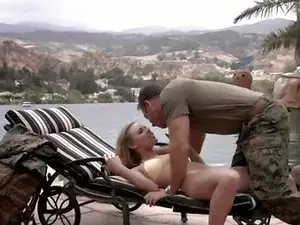 3 years ago
3 years ago
Sunday the 15TH I woke with my bladder full, and screaming for attention. Throwing the blanket off, I stumbled to the bathroom as I unsnapped my pants. Standing there, I pissed like a racehorse as I picked up the bottle of Advil, and popped the top off. I fumbled a couple of tablets out and slipped them in my mouth, as I finished pissing. Flushing the toilet, I snapped the lid back onto the Advil. I bent down and took a drink from the faucet. Shutting the sink water off, I reached over and...
 2 years ago
2 years ago
The headboard to Christi’s bed was slamming against her wall with so much force that paint was chipping off the cracking plaster. “Oh yes! Oh YES!” she screamed, lying on her back and clinging to the corners of the mattress. Sitting on the soles of his feet with his hands on her thighs, Jason was thrusting into her with all the strength in his body. Christi’s parents had gone out to dinner with friends and her brother was out on a date, so they had the house to themselves and...
 4 years ago
4 years ago
Horror Movies It was a dark and rainy night. Our parents were away for the week and we were supposed to be home alone. As you know…kids will be kids. I called up two of my friends and Donna called up some of her friends. Before we knew it we had a house full and they were all spending the night. There were the three of us guys and there were six girls, two for each of us. Donna was fourteen years old and her friends were all about that age too. I am sixteen years old and my friends are...
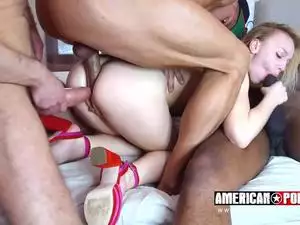 4 years ago
4 years ago
As the diminutive red head sat down uncle Bertie took her hand. He and Aunt Stephanie had been so kind. The past week would have been unbearable without them. The smiling big man gave her a comforting open armed invitation of condolence the beautiful 5'3 flower beginning to wilt. Now inside the limo Candice not one for showing her emotions in public began to sob, her knees curled up, her little figure hugging black dress and big rim hat looking like something out of Breakfast at...
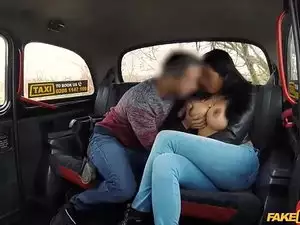 2 years ago
2 years ago
Rocky Horror Bet "Come on Lisa, don't you think this is going too far?" I asked nervously. "Tom, a bet is a bet. And you lost fair and square...besides, this is my final, and we need to have you ready for the show tonight." I swallowed again and shut up. It was no use whining, I had lost the bet. I wiggled in the chair in the beauty school as she worked on me. Part 1 It all started last week as my Jets faced off against her Giants. It was one of those rare times in...
 4 years ago
4 years ago
This is my First story ever written. Email comments, criticisms and blatant praise to [email protected] this story is also complete fiction everything in it is nothing more than the twisted fantasies of the writer. The writer does not condone mind control or rape in any form. (Unless the writer is the one being raped or mind controlled) Little Farm of Horror Part 1 Charles had been driving for hours. He was getting worried, very worried. The last gas station he had...
 2 years ago
2 years ago
With the service over Candice made her way back to stretch limo the driver looking appropriately respectful his hands crossed, With the service over Candice made her way back to stretch limo the driver looking appropriately respectful his hands crossed, head down. As she neared he opened the door allowing the young woman to climb inside her uncle already waiting. She had turned 16 just 3 days ago; but it was a birthday she would want to forget. Sure her aunt and uncle had made an effort...
 4 years ago
4 years ago
I didn't know about the Rocky Horror Picture Show until pretty late on. I had heard the album, without knowing where it came from, but hadn't seen the film. As a result I missed what all the sly grins were about that passed between my friends. "Have you seen this?" asked Martin, whilst playing the soundtrack. "No, but I've heard a lot about it." That was a lie. A stone cold lie. I knew nothing about it other than there was a guy in it called Frankfurter or something similar. It...
 2 years ago
2 years ago
Introduction: Our new friends make us both an offer This is the sequel to Grace in Disgrace 1 & 2 For maximum enjoyment, please read them first. I had just had my first experience of a double penetration by fucking my wife, Grace, in the arse while our new friend, Pete, fucked her cunt and Petes girlfriend, Valerie watched. The three of us just lay on the bed, I was on top, Grace in the middle and Pete underneath. Valerie was standing beside the bed. That was amazing to watch. I cant wait for...
 2 years ago
2 years ago
(Many thanks to KittyKatBC, my editor on this one. I’m glad she was on board, it made the story easier to write.) * Lacey was my boss, I do emphasize the word was. The company I work for is a family owned and run architect business and since the only child the owner had was a daughter who had no interest in the company, we all knew that once he retired then the company would either close or be swallowed up by a bigger company, but we all liked it here. So we all stuck it out since the owner...
 4 years ago
4 years ago
As she walked out of the kitchen and gave Jace a glass of water with the two red pills her eldest daughter Jenna walked through the front door. “Where have you been young lady?” she prompted at her daughter who was far past her curfew. “I was with Lance, I told you I wasn’t going to be home for a couple hours!” Jenna curtly replied back. “And I told you to either be back by curfew or you’d be grounded. I don’t care if you are 18; you still have two months before you go off to college....
 2 years ago
2 years ago
Hello dear readers, I would like to present you with one of my short novels.It has quite a story about a favorite world, world of warcraft, but it brings debauchery as its core moments while maintaining the adventure and thrill of a good novel.______________________________________________________________________________________________________________Chapter I I remember how it all began, when everything was but a blur and nothing was graspable, that faithful day is when we decided to create...
 2 years ago
2 years ago
There were two different reasons that he begged my mom for me to stay the night, one coming from him and the other from me. The whole real reason Mike wanted me to stay the night was because he never had a brother and plus he had a couple of new video games which he was overly excited about them and he wanted me to play with him. Now the reason I wanted to stay the night was totally different from his reason, my reasons came with long blond hair and edible bodies, his sisters, Mandy...
 2 years ago
2 years ago
But I started out as a complete twat when it came to women a complete twat....i barely dated more than four girls in Hi-School... Well Anyway i realised wat really turned them on...wasn,t really some1 as good lookin as me but somone who was arrogant n funny. Not a jerk coz he was arrogant, not a clown coz he's arrogant n attractive coz he's fun...now Chandler in Friends is funny but he is not exactly arrogant but then look at Neo in Matrix or John Travolta in Face Off...Now thats somethin...
 4 years ago
4 years ago
What had started out as some fun flirting on the Internet ended up far more than I had bargained for! We have met innocently enough in the chat room, some good-humoured fun, and a little bit of gentle flirting. You don’t come in here for anything serious or mind blowing, or at least that’s what I thought. The chat had become a little bit more intense, still fun and flirty but I soon realised that there was a sensual undertone to the witty one-liners and the quick responses. That chat became...
 4 years ago
4 years ago
The press was always a hassle thought Robbie Williams as he wadedthrough a hoard of screaming fans, and what seemed like an evenbigger staff of paparazzi... Oh sure... They have been after him forages... But ever since the story broke that he was seeing thebeautiful Andrea Corr they had just gone bezerk over his everymove...The funny thing is... At the time the story broke he wasn't seeinganybody, Andrea Corr, or anyone else for that matter (sure, he wassleeping with as many women as he could,...
 1 year ago
1 year ago
100% fiction! I was laying there in some very transparent red lace panties and Drews’ tee shirt. Head was really confused with my body and my spontaneous reactions to my conversations with this cute teenaged boy one bed over. Only hours before I was in a conservative night gown that more that covered me down to my knees. I felt both guilt and passion as I heard him sleeping on the next bed over from in our very upscale hotel room. I balled up in a fetal position with my mind on my wet crotch...
Incest